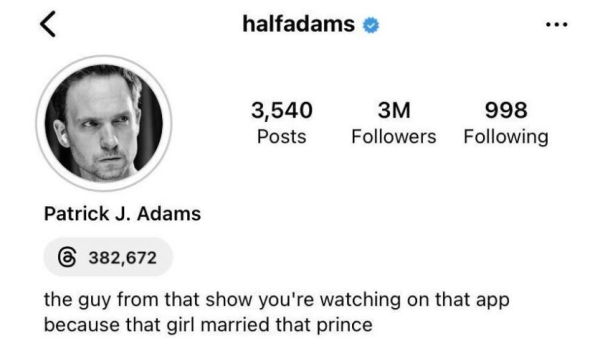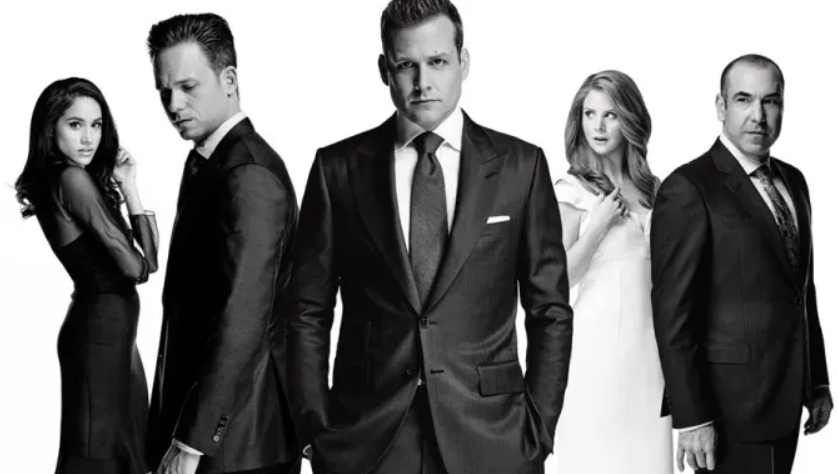Have you heard of a little show called Suits? Chances are you or a friend has opened the Netflix app to see men in, dare I say it, suits, or perhaps the face of former actress and current duchess of England, Meghan Markle. Suits has had a remarkable run on Netflix, becoming one of the most watched titles on the service over the summer. The popularity of Suits, and shows like it, reveal the interesting place that entertainment currently occupies in American culture.
It’s not an exaggeration to say Suits skyrocketed overnight: it broke the record for most watched acquired show within a week. This is especially interesting considering how many acquired titles Netflix has had, including major hits like The Office, Friends, and Breaking Bad. To be honest, it almost doesn’t make sense. The plot of Suits is not groundbreaking or particularly sensational, nor does it contain highbrow humor. It’s a show about fast-talking lawyers who argue in both their personal and professional lives for multiple seasons—Suits is not reinventing the wheel. But that’s the key thing: it doesn’t have to.

Suits has the perfect mix of a few key elements. It makes the audience feel smart and keeps them entertained: the characters talk fast and are just witty enough to make you laugh. The stakes in the show are dramatic but follow a familiar formula. Patrick J. Adams’ Mike Ross is a lawyer at a firm that only hires from Harvard, except he never went to Harvard. To keep his job, he relies on his photographic memory and the protection of the arrogant but charming Harvey Specter, played by Gabriel Macht. Each season has one or two overarching conflicts, like issues with a competing legal firm, relationship problems between two characters, or flaring rivalries between Macht’s Harvey and Rick Hoffman’s Louis Litt. Perhaps most importantly, the show can be put away for a couple months, and viewers can return to it without any major struggle. It is both binge-worthy and forgettable.
At the end of the day, Suits is a background show—and that’s what has contributed to its success. There is always a market for an easy viewing experience. Nowadays, many TV productions are high stakes and dramatic (think The Bear, Yellowjackets) so while watching them can be thrilling, they may not feel like a relaxing experience. These shows demand the audiences’ full attention to keep up with the fast pace and all the key details in the plot. This is an issue that even plagues TV that is, to put it bluntly, less good. Even when some story lines don’t seem like they need your full attention, they are treated as such. For viewers who want to just turn their brain off and watch some TV, these shows may not be what they are looking for.
TV seasons are also getting shorter, trending towards seven to 10 episodes. In contrast, Suits follows the traditional 20+ episode season format that was prominent during the cable TV days. It can also be nice for people to have something familiar to watch and not have to worry about it ending too soon. Audiences may be comforted by the fact that Suits is not in any risk of being canceled after one or two seasons. The show ended in 2019 and ran for nine seasons, meaning viewers have plenty to watch if they like what they see.
With SAG-AFTRA on strike and the Writers Guild just returning to work, new TV series have experienced a slow down in production. This gives people time to revisit these previously popular shows, either to finally watch for the first time or to rewatch, another reason why the popularity of Suits experienced a boost.
It seems like for many viewers, a bingeable background show is just what they’re looking for. As the world grows more chaotic and tumultuous, leaving not even the entertainment industry untouched, people long for escape. Ascending to the high rise glass law firms in New York City might be just the place.

























